
THE VOICE OF INTERNATIONAL LITHUANIA
|
VilNews has its own Google archive! Type a word in the above search box to find any article.
You can also follow us on Facebook. We have two different pages. Click to open and join.
|
Sat, 9th January, 2016 | Comments (18)
By Aage Myhre, Editor-in-Chief
Close to 50% of all Lithuanians live outside their home country as there through nearly 200 years has been wave after wave of emigration from Lithuania.
In the 1800s there were many who emigrated because of poor conditions in the home country, as well as repression and persecution of Tsar Russia that occupied Lithuania over the period 1795 - 1915. When Lithuania again was a free country in the period 1918-1940, there was a small number, often intellectuals, who returned to their homeland.
Towards the end of WWII, when Stalin's Red Army was ab of the out to push Hitler Germany's troops back, there were hundreds of thousands who fled westward to avoid deportation to Siberia and similar abuse. Many of those who remained in Lithuania when the Iron Curtain fell, were deported to the cold hell far east. Tens of thousands were killed during the guerrilla warfare that raged in the Baltic region in the years 1944-1953 and later.
During the 46 years when Lithuania was occupied by the Soviet Union from 1944 to 1990 there was only sporadic contact between the inhabitants and the large diaspora in western countries, particularly the US and Australia, but Lithuanians never gave up the hope that their homeland would again be free and independent.
In 1990-1991, this happened after underground forces for many years had worked for such a detachment from the Soviet yoke.
In 1991 Lithuania's population about 4.7 million, but today's emigration to Western Europe and the United States has resulted in dramatic decrease in population, and there now lives only about 2.9 million in the very country.
Lithuania is thus today a nation spread over many countries around the world, and it requires a lot of prudence and good communication to keep this nation together and to keep Lithuanian language and culture alive all over the world.
Below we present some stories from past and present describing how Lithuanians have emigrated or fled from their home country, and how they over the years have established themselves in various countries and cultures.
|
Lithuania’s second capital |
in Australia after WW2 |
South Africa are from Lithuania |
|
Lithuania 2 years ago |
to say they love me |
University to modeling in Milan |
|
Venezuela! |
force, one to be desired and respected as an ally on behalf of Lithuania |
hearts and minds for the sake of a new Lithuania |
Go to our SECTION 7 to read many more stories about Lithuanians in the world …
Thu, 31st December, 2015 | Comments (7)
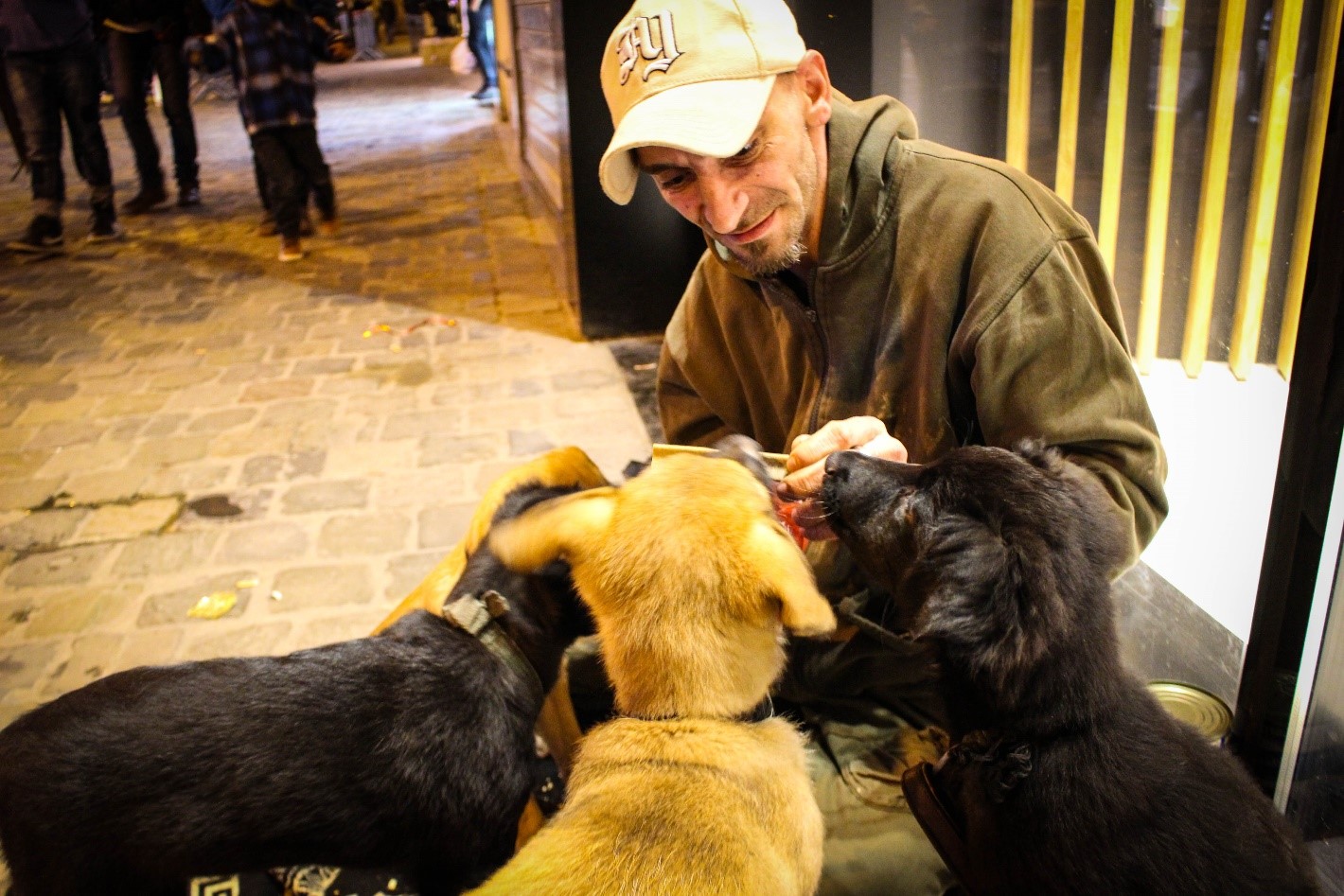
By Rugilė Šablinskaitė
Brussels – Belgium
...It's a time for giving, a time for getting,
A time for forgiving and for forgetting.
Christmas is love, Christmas is peace,
A time for hating and fighting to cease’…
sings Cliff Richard.
I guess everyone knows this cliché Christmas song as well as many more others that talk about this special time of the year when everyone becomes just a little bit better, a little bit more understanding, more giving, less angry. Oh, and we shouldn’t forget about the so called Christmas miracle. So many ads and campaigns shouting: ‘Help someone have their Christmas miracle’.
Read more...Tue, 22nd December, 2015 | Comments (1)
Six Lithuanian Christmas stories
By Aage Myhre. Editor-in-Chief Go to our SECTION 4 to read more stories from Lithuania‘s proud history ...
|
|
|
1936
From Palanga, West Lithuania
Lithuania's happy interwar period approaches its end. But Christmas is still celebrated in joy and harmony.
|
|
|
1942
From the Lena river delta, Arctic Siberia
Lithuania was occupied in 1940. The massive, cruel deportations to bitterly cold Siberia began in 1941.
|
|
|
1945
From Šilagalis, North Lithuania
A sad Christmas story of a mother witnessing her partisan son being tortured and killed by Soviet soldiers.
|
|
|
1945
From a German refugee camp
Hundreds of thousands managed to flee to the West in 1944, before Stalin's Red Army began its horrible abuses.
|
|
|
1980
From Soviet Lithuania
35 years of 'the war after the war', of cruel occupation – Soviet systems permeate everything. Is there any hope?
|
|
|
2015
From around the world
The most wonderful time of the year – with old traditions, cuisine and spirit – for Lithuanians all over the world.
|
Sat, 12th December, 2015 | Comments (2)
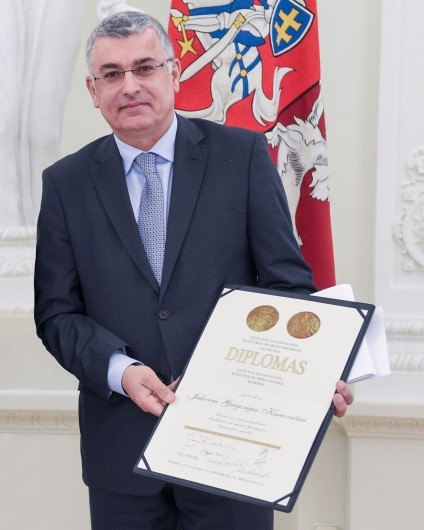
SERGEY KANOVICH
Photo R. Dačkaus
Sat, 12th December, 2015 | Comments (1)
|
and their formidable position in world history By Aage Myhre
Editor-in-Cief I have on various occasions, in several countries, asked people if they know of the Litvaks (Lithuanian Jews) and their special place in world history and in many of today's countries and societies around the world. The answer is usually negative, which has puzzled me – in view of the unprecedented and exceptional role the Litvaks have had within a very wide range of fields, in politics, economics, business and science, to prominent roles in music, movies and many other cultural fields. Go to our SECTION 9 to read more Litvak stories ... |
|
Vilnius Old Town |
The Litvaks
Jews trace their origins in Lithuania back to the days of Grand Duke Gediminas in the early 14th century, and by the late 15th century there were already thriving Jewish communities here. In time, Vilnius became known as the "Jerusalem of the North," a centre of Jewish religious learning. The Jews of Lithuania lived an intense Jewish life, and their role and influence in the major Jewish political and cultural movements were far greater than their numbers would have suggested. Vilnius became a prominent international, intellectual centre. Here there were once as many synagogues (totally 96) as churches—including the Great Synagogue, built in 1573, a vast complex of prayer spaces and schools.
|
|
|
Vilnius was like
a Mediterranean city EMMANUEL ZINGERIS: “Vilnius was like a Mediterranean city. Lithuania before Holocaust was a society of love, full of colourful life and warm interaction between people. Imagine that here, in the street we are sitting, the windows would now be open, the mothers would be shouting to their children, and the street would be filled with joyful people discussing, singing, reading and mingling in a happy crowd of friends, colleagues and visitors.”
|
|
Rabbi Eliyahu of Vilna was born in Vilnius in 1720 and died in 1797. |
“If you seek wisdom,
Vilnius is the place to go” Before WWII there was a saying among European Jews: if you are keen on earning money, go to Lodz; if you seek wisdom, Vilnius is the place to go. “I live in this city with a feeling that it does not belong to me and that I have only come here for a visit – as a human being, a poet and a Lithuanian. In this respect Vilnius could be compared only to Jerusalem. Only Jerusalem is the city of God, whereas Vilnius is the city of a dream. Trivial as it might seem, it was founded after Gediminas has a dream. It’s as if Vilnius was not created by man – you have the feeling that Vilnius has risen from the ground, from the confluence of the rivers, from the landscape – it rises on its own, possibly with some support by man. It is also in the details that the beauty of Vilnius lies. On the one hand, the Vilnius of the dream lets its citizens merely touch it; on the other hand, Vilnius sucks them in and swallows them”
|
|
Elchanan Spector (1817-1896), served as chief rabbi of Kovno, the most prominent rabbinical position at the height of 19th century Lithuanian Jewry. |
Kaunas was an
important centre of Jewish life Jews are first known to have lived in Kaunas (Kovno) as early as 1410 when they were brought forcibly as prisoners of war by the Grand Duke Vytautas. Many of those Jews were later active as traders between Kovno and Danzig (today's Gdansk, Poland). Living conditions for many Jews were squalid. In 1858, archaic living restrictions were relaxed and all but 6,000 of the city's 35,000 Jews flocked to the Old Town in search of something better. In July 1941, however, the Nazis expelled all the Jews from the town and sent them back to Slobodka. The Kovno Ghetto was thus established. Kaunas became an important center of Jewish cultural life in the latter half of the 19th century. Distinguished Jewish leaders moved here from Vilnius, the capital, to establish yeshivas. Influential thinkers also moved to Kaunas.
|
|
is more Lithuanian than Lithuania itself. |
90% of all Jews in
South Africa are Litvaks It is considered that around 90% of the approximately 80,000 Jews living in South Africa are of Lithuanian descent (the so-called Litvaks), which thus constitutes the largest pocket of Litvaks in the world! You are hereby invited to learn more about this unique Jewish community that still holds Lithuania alive in their hearts, museums and synagogues. The Jewish Museum in Cape Town offers visitors a journey back in time. Most museums do. The striking feature of this museum, however, is that the journey to the past also brings us to a completely different part of our world, from Africa's southern tip to a seemingly modest little country far to the north.
|
|
(Kovno) Ghetto, Lithuania. Yad Vashem Photo Archive, 4789 |
Kaunas Ghetto (1941-1944):
An entire urban district
turned into a merciless death camp What happened to the Jews in Lithuania during World War II is a matter of grim record. Of the 250.000 Jews in 1939, only between 12.500 and 17.500 survived; of those, only about 200 remain today. It has been estimated that of the 265.000 Jews living in Lithuania in June 1941, 254.000 or 95% were murdered during the German occupation. No other Jewish community in Nazi-occupied Europe was so comprehensively destroyed.
|
|
a Holcaust survivor. . |
“I do not remember the faces of
any evil people from my past, but I do very well remember the faces of those that expressed goodness. We have to learn to love and to understand.” |
|
|
Litvaks of today
During the 19th and 20th century, tens of thousands of Lithuanian Jews emigrated to the United States of America. Many Lithuanian Jews also emigrated to South Africa which became famous as a haven for its 100.000 Jews who were spared the Holocaust. A small number also emigrated to the British Mandate of Palestine. The rise of the Nazis in Germany and the ensuing Holocaust destroyed the vast majority of Jews who had not managed to leave Lithuania and its environs.
Jews of Lithuanian origin are today in leading roles and positions around the world – some of our nowadays most famous politicians, scientists, businessmen, economists, actors, writers and singers have Litvak background. |
Sat, 12th December, 2015 | Comments (9)

Sat, 12th December, 2015 | Comments (11)
"The Eternal Question” / “DI ALTE KASHE”
FRAIDY KATZ sings in Yiddish
Sun, 6th December, 2015 | Comments (10)
Section 8:
Lithuania has a 700-year history as home to numerous nationalities. The articles below are good examples of such historic as well as modern foreign influence.
VilNews offers more than 7.000 Lithuania-related articles. Click on the
18 section links on top of this page to read articles from different fields.
Sun, 6th December, 2015 | Comments (0)
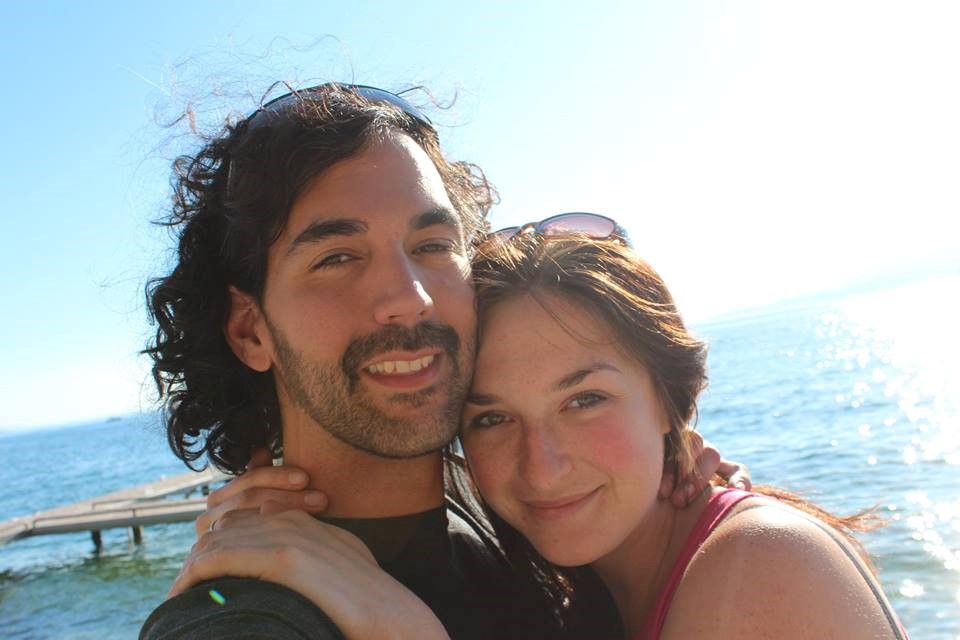
Sun, 6th December, 2015 | Comments (3)
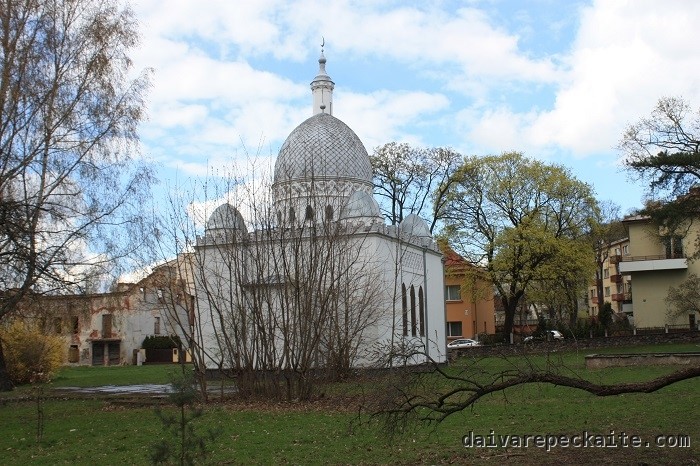
The community of Kaunas mosque provided an opportunity for anyone interested to go inside the unique Tatar mosque of Kaunas, to see a Muslim prayer, look around and enjoy food from various countries and cultures. The mosque has become an important contact point for old and new Muslim communities, the latter consisting of foreign students, workers, spouses of Lithuanians, expats and local converts. The 3000-strong Tatar community has been around for centuries and is can help their sisters and brothers in faith with accessing Lithuanian institutions, networking and, most importantly, feeling at home in this relatively homogeneous European society. Other functioning mosques are in distant small towns. Vilnius doesn′t have a mosque, and the current mayor, Remigijus Šimašius (liberal) made it clear that he will not do anything in his power to help establish one, even though, when Syrian and Iraqi refugees are resettled according to the EU scheme next year, the Muslim community in Vilnius will grow. There is not a single Shia mosque (most Shia Muslims are apparently from Azerbaijan), but Shia believers can attend Sunni services.
Read more...Fri, 4th December, 2015 | Comments (1)
Lithuanian business was greatly harmed by the financial crisis in 2008. Now, however, there are again many positive signs for the country's business sector.
VilNews offers more than 7.000 Lithuania-related articles. Click on the
18 section links on top of this page to read articles from different fields.
Fri, 4th December, 2015 | Comments (7)
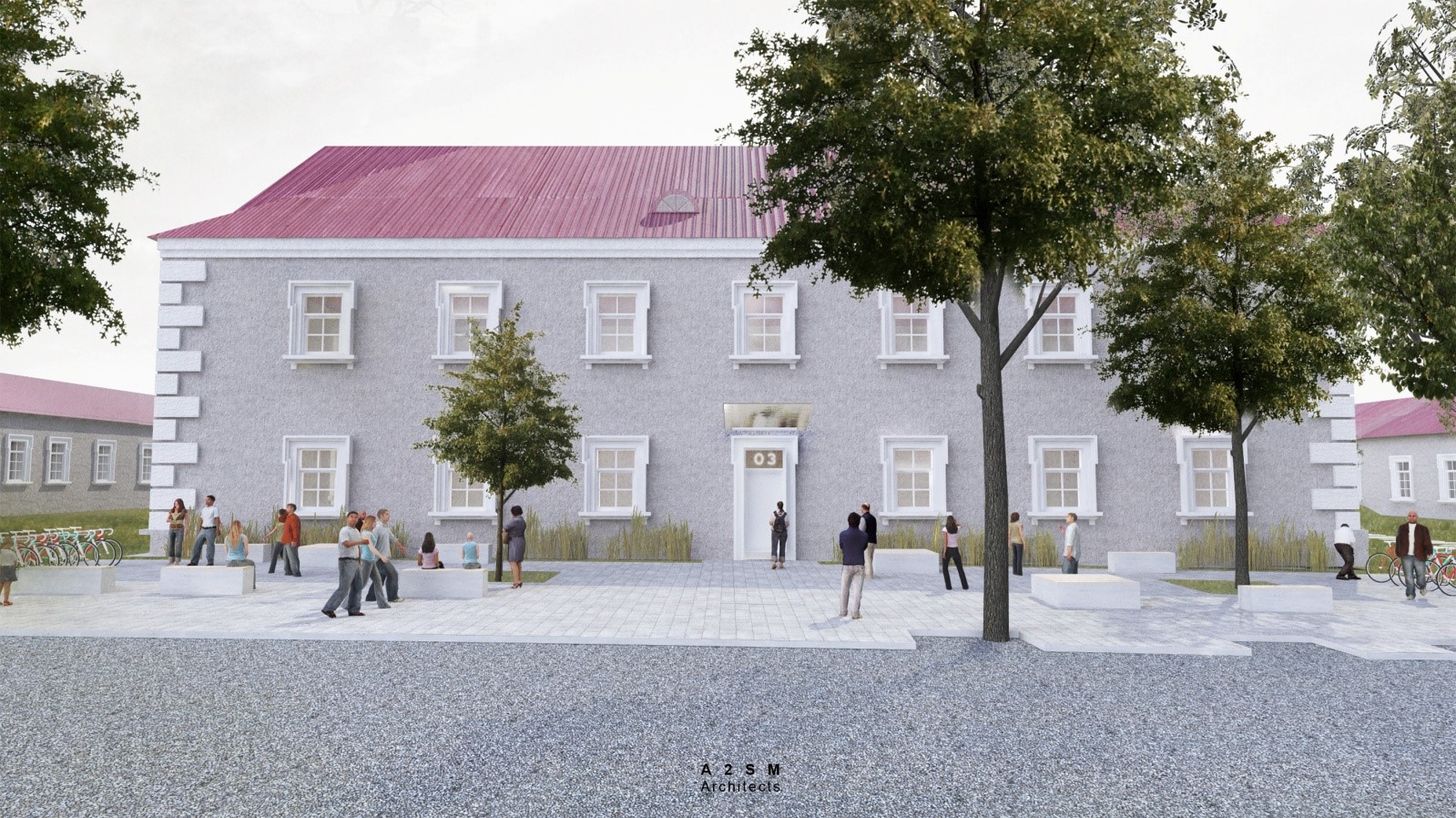
Two private investors, together with their partners, offered to municipality to lease the buildings for 25 years and invest nearly 8 m euro to the renovation of the heavily rundown buildings. The agreement has been made. While keeping their original looks and historical value (there are some fragments of decorated floors, etc. left that will be kept), the buildings are about to be reborn as 8 000 sq meter space for startups and related infrastructure.
Read more...Sun, 29th November, 2015 | Comments (6)
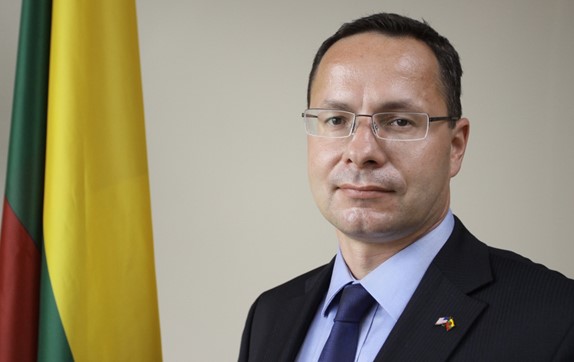
By Žygimantas Pavilionis,
Former Lithuanian Ambassador to the United States of America
I am deeply grateful for the exceptional honor and privilege to serve my country in Washington D.C. for five consecutive years (2010-2015). I guess it was the peak of my diplomatic career that inspired me to take my final step towards politics (I am now running for office in 2016 parliamentary elections), but most importantly, it was the period when I met and learned so much from my fellow Lithuanian Americans.
Why was this encounter so important for me personally?
First of all, I had an immediate connection to the strong and vibrant civil society of interwar independent Lithuania, preserved in Chicago and other great U.S. cities, strengthened by the great American spirit. The sense of human dignity, solidarity, Lithuanian heritage, our common mission was tremendous, inspiring, and breathtaking.
Read more...Sun, 29th November, 2015 | Comments (16)
By Aage Myhre
When thinking about fashion centers, one generally thinks about Milan, Paris, London or New York and not about Vilnius or Lithuania. However Vilnius is home to many innovative designers. It is also the manufacturing hub for several European brands. For many, Vilnius is attractive due to the combination of European quality and lower costs compared to many other European countries. To find out more, I had a chat with American Gene Emmer, living in Vilnius since 2008, owner of the company that makes the Kajamaz adult footed pajamas.
Read more...Fri, 20th November, 2015 | Comments (4)
2nd part: VilNews interview with
Professor Landsbergis, Veisaitė
 V. LANDSBERGIS IN STRASBOURG 1990 |
 SMUIKELĖ – V. LANDSBERGIS’ FAVOURITE PORTRAIT. BY R. PETROŠIŪTE FROM KELMĖ |

Journalist: Dalia Cidzikaitė
Questions prepared by Aage Myhre
Today we have the pleasure of presenting second last) part of a large, exclusive interview with two professors who have meant infinitely much for their homeland Lithuania. In today's interview, we focus on their memories, experiences of and thoughts about the BELOW eras of their lives, over the years 1950-2015:
· WHY IS STALIN STILL CONSIDERED A HERO BY MANY?
· THE LITHUANIAN PRESIDENT WHO WAS DEPORTED TO SIBERIA
· WAS LITHUANIAN PRESIDENT SMETONA
· MURDERED BY THE KGB?
· WHY DO LITHUANIANS ABROAD NOT RETURN HOME?
· DUAL CITIZENSHIP
· DID YOU KNOW EACH OTHER?
· LITHUANIA’S UNDERGROUND MOVEMENT DURING SOVIET TIMES
· HOW COULD THE LITHUANIAN COMMUNISTS
· GET BACK TO POWER ALREADY IN 1992?
· GEORGE SOROS AND A HUMANE DEVELOPMENT OF LITHUANIA
· DID YOU MEET VLADIMIR PUTIN FACE-TO-FACE?
· THE WORDS OF EINSTEIN
Fri, 20th November, 2015 | Comments (1)
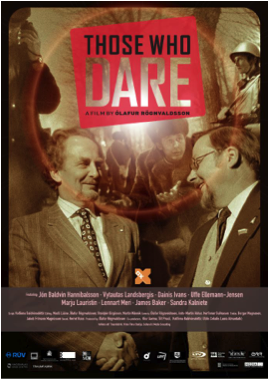
By Vytautas Sliupas,
Burlingame, CA
Stanford University in California is sponsoring Baltic Film Series! October 19th was the Opening Night of the film “Those Who Dare”. It features the Baltic nations' (Lithuania, Latvia and Estonia) struggle for the restoration of their independence, from 1986 to 1991 during the period of Gorbachev's “Perestroika”.
The film is based upon the live memories of Jon Baldvin Hannibalsson, Minister of Foreign Affairs of Iceland, 1988-1995. He visited Vilnius at the height of Lithuanian struggle, witnessed sieges of the Parliament and the TV tower and subsequently was instrumental in getting Iceland to be the first nation to recognize independence of the Baltic States. The film captures the dramatic course of events in the Baltic capitals of Vilnius, Riga and Tallinn in January 1991 when the Soviet OMON narcotized, Ministry of Internal Affairs of SSSR, troops attempted to brutally suppress the independence movements.
Mr. Jon B. Hannibalsson in person gave a 30 minute introduction of the events in the Baltics in those days. Two memorable events that had greatest influence on the world, and helped to convince other countries to recognize the Independences, he said, were “The Singing Revolution” and the “Baltic Way”.
The film “Those Who Dare” is highly recommended to everyone. Other Baltic Film Series will feature: “Dangerous Summer” (2000), “In the Crosswind” (2014), and “Land of Songs” (2014). The Baltic Film Series is co-sponsored by Stanford Libraries and the Hoover Institutes' Center for Russian, East European and Eurasian Studies.
VilNews e-magazine is published in Vilnius, Lithuania. Editor-in-Chief: Mr. Aage Myhre. Inquires to the editors: editor@VilNews.com.
Code of Ethics: See Section 2 – about VilNews. VilNews is not responsible for content on external links/web pages.
HOW TO ADVERTISE IN VILNEWS.
All content is copyrighted © 2011. UAB ‘VilNews’.